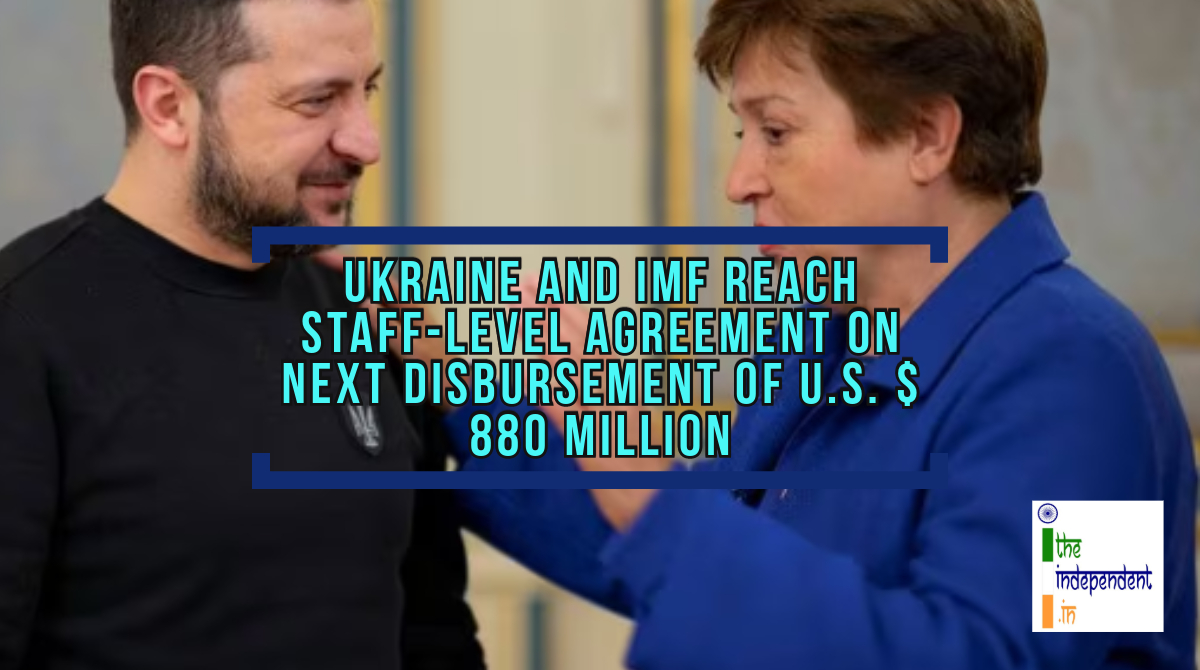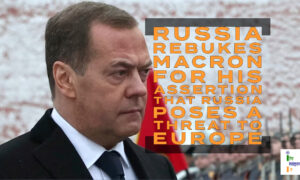
The agreement was reached after discussion between the IMF and Ukrainian Officials in Warsaw as a part of a third review of Ukraine’s U.S. $15.6 billion 4-year Extended Fund Facility (EFF)
The Ukraine and the International Monetary Fund (IMF) have reached a staff-level agreement on updated economic policies, paving the way to releasing an aid of U.S. $ 880 million, once approved by the IMF Board.
The agreement was reached after 6 days of discussion between the IMF and Ukrainian Officials in Warsaw, Poland as a part of a third review of Ukraine’s U.S. $15.6 billion 4-year Extended Fund Facility (EFF) Arrangement with the IMF. The EEF forms part of a U.S. $122 billion international support package for Ukraine through early 2027.
The IMF said that Ukraine’s progress on the Programme was “broadly on track”, as Ukraine met all the structural benchmarks under the review and other quantitative performance criteria, except one. It missed tax revenues owing to border blockades.
Speaking on the occasion, Gavin Gray, the IMF official who led the talks in Warsaw said, “The EFF continues to provide a strong anchor for the authorities’ economic program in times of exceptionally high uncertainty.”
Taking it to X, the IMF tweeted,
The IMF staff and Ukrainian authorities have reached staff-level agreement on the third review of Ukraine’s EFF arrangement. The agreement, subject to approval by the IMF Executive Board, would give Ukraine access to about US$880 million: https://t.co/HuhJfrltEB pic.twitter.com/seku1nguvn
— IMF (@IMFNews) February 23, 2024
The IMF said that Ukraine demonstrated strong growth last year by reducing inflation and strengthening its reserves. However, it also said that the outlook continues to be highly uncertain due to the ongoing Russian invasion.
The Rapid Damage and Needs Assessment (RDNA-3) has estimated reconstruction needs at U.S. $ 486 billion. Ukraine is expecting assistance to the tune of U.S. $ 5.4 billion this year. With these funds, it will concentrate on domestic resources on defence, which is their number one priority.
The authorities stand ready to swiftly respond to shocks and have already taken measures to address liquidity strains that emerged at the start of the year due to external financing delays. Importantly, timely disbursement of committed external support, projected at U.S. $ 38 billion in 2024, is critical for budget financing and sustaining macroeconomic stability.
Preparations for the treatment of external commercial debt are advancing as it is essential to complete this by mid-2024 and consistent with program parameters. This, together with assurances from official sector creditors and donors (of highly concessional exceptional financing over the program period) and a revenue-based medium-term fiscal adjustment (that builds on the recently launched National Revenue Strategy), is Critical for restoring debt sustainability.
The financial system remains stable and liquid, though continued vigilance is warranted given war-related uncertainty. The National Bank of Ukraine’s (NBU) recent Resilience Assessment and prompt action to close capital shortfalls have been welcome steps to preserve stability. Priorities ahead include strengthening supervision and financial safety nets, financial market infrastructure deepening, including of the payment system, and the regular Resilience Assessment and, when conditions allow, completing an independent asset quality review.
Going ahead, the staff-level agreement will be reviewed by IMF Management and the IMF’s Executive Board in the second half of March’24.







